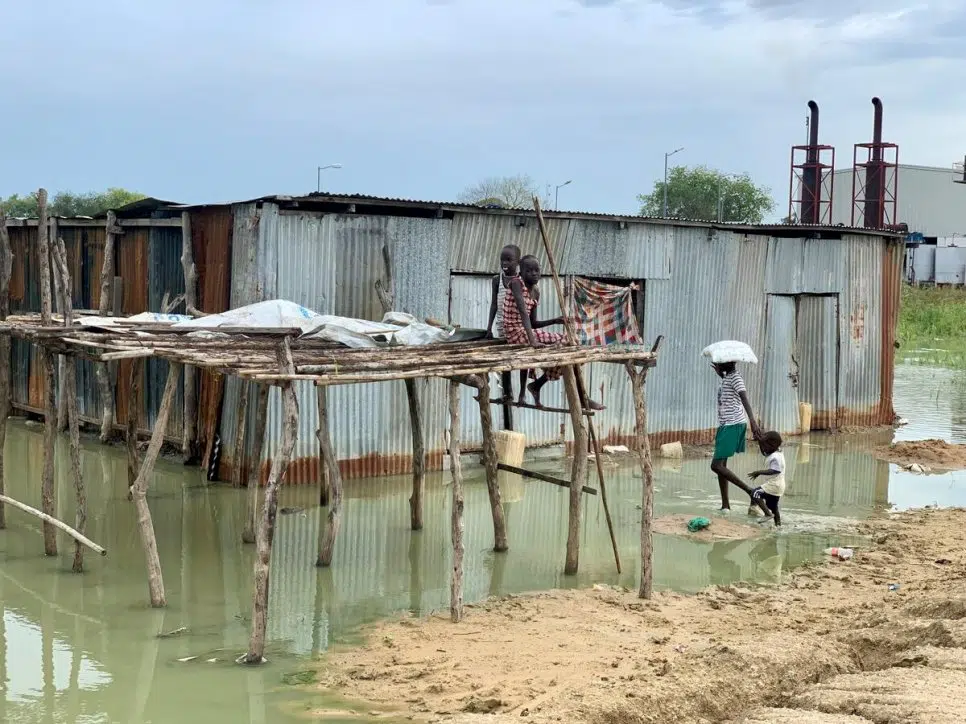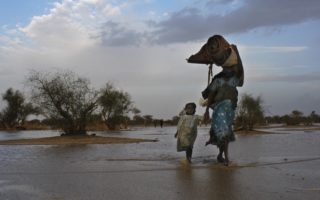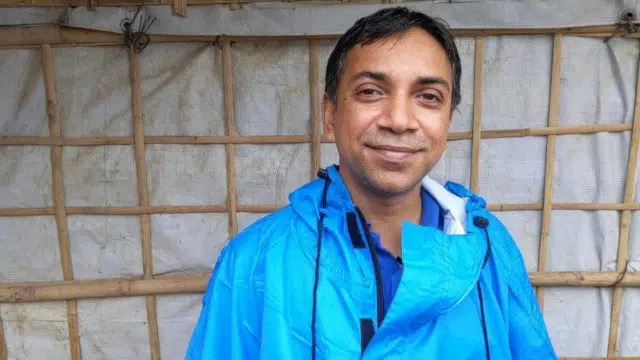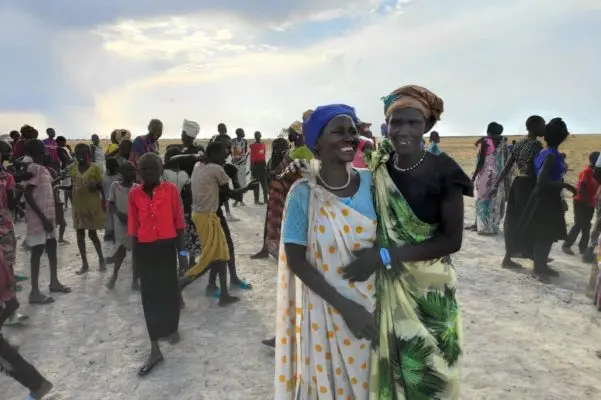
Despite rising waters, many families continue to live in their flood-affected homes in South Sudan’s Jonglei State, storing perishable items, such as food, on makeshift scaffolding. © UNHCR/Aoife McDonnell
This is a summary of what was said by Arafat Jamal UNHCR Representative in South Sudan and ad interim UN Resident and UN Humanitarian Coordinator – to whom quoted text may be attributed – at today’s press briefing at the Palais des Nations in Geneva.
As the worst flooding in decades impacts over 700,000 people across South Sudan, UNHCR, the UN Refugee Agency, is alarmed at the critical needs facing the most vulnerable. Together with the humanitarian country team and South Sudan’s government, UNHCR is delivering urgently needed support to the most affected, including hygiene items, food, emergency shelter and solar lanterns to provide light.
Unrelenting floods from weeks of heavy rains have swept away homes and inundated farmlands. Families and livestock have been forced to seek safety on higher ground and in neighbouring towns.
In Upper Nile State alone, UNHCR teams met around 1,000 people who had walked for seven days to reach Malakal town. Women, children, and elderly people arrived exhausted and hungry. Some had not eaten in days. Others are marooned on islands surrounded by water, sheltering under trees and unable to cross to safety. Women are deeply worried about the health of their children, with the increased risk of infections from deadly water-borne diseases.
The effects of the climate emergency are being felt on every continent and in every region, but its impacts are profoundly felt in East Africa. Communities, already struggling, are facing unprecedented floods and storms, unreliable rainfall, and distress under hotter and drier conditions as their basic needs and rights to water, food, livelihoods, land, and a healthy environment are hit hard.
The recent floods primarily affect four states in South Sudan. In some areas, communities have not seen flooding to this extent since 1962. Others continue to experience the impact of these adverse weather events, where three years of consecutive flooding has eroded people’s ability to cope and survive.
Rains in South Sudan are expected to continue for the remainder of the year, with an anticipated increase in the number of people needing humanitarian assistance. In addition, climatic stresses, both flooding and drought, sometimes taking place within the same year, have sparked inter-communal conflict, as communities are forced to seek and share refuge in ever shrinking patches of higher ground and seek to desperately compensate for lost income. Dialogue between host and displaced communities who share resources will continue to be essential.
In an encouraging development, the Government of South Sudan, one of the world’s poorest nations, has already allocated US$10M to flood response efforts. Local governments are also working to alleviate suffering within the communities including building dikes, installing systems to pump out flood waters and to redirect excess water through canals. Host communities and displaced people themselves also continue to show incredible resilience and generosity.
The present floods have hit at a time when people are already facing the triple threat of conflict, COVID-19, and hunger.
The flooding not only triggers immediate humanitarian crises but will reverberate through the coming year as entire planting seasons are lost, and herds of cattle are drowned. Humanitarian agencies and local governments in South Sudan are piling sandbags and pumping out water in an urgent attempt to shield populations from the worst of the flooding, but in order for the nation to bounce back, a more concerted effort to help families and their livelihoods adapt to the relentless and intensifying effects of climate change is imperative.
With devastating flooding expected to continue as the climate crisis intensifies, UNHCR is calling on the international community to urgently assist affected communities to rebuild and protect people’s lives and livelihoods.
B-roll https://media.unhcr.org/Share/63804yp2448hd1sw2q4j4wlf3242b5os
For more information on this topic, please contact:
In Juba, Aoife McDonnell, mcdonnel@unhcr.org, +211 92 265 4116
In Nairobi, Faith Kasina, kasina@unhcr.org, +254 113 427 094
In Geneva, Boris Cheshirkov, cheshirk@unhcr.org, +41 79 433 76 82
In New York, Kathryn Mahoney, mahoney@unhcr.org +1 347 443 7646
Share on Facebook Share on Twitter
Originally published by UNHCR on 19 October 2021





